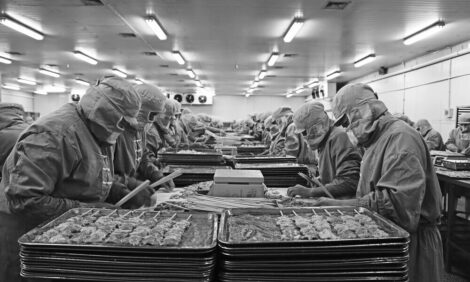



Huge Potential for UK Bio-Based Economy
UK - The potential of the bioeconomy to generate jobs, economic growth and wellbeing in the UK was highlighted at a meeting in the House of Parliament yesterday.
The event was hosted by George Freeman MP, Chairman, All Party Group on Science and Technology in Agriculture, and supported by the Biotechnology and Biological Sciences Research Council (BBSRC).
The bioeconomy encompasses a wide range of activities that use bioscience based research or processes to produce products, food, fuel or therapies and is driven by increasing demand. Across Europe the sector already represents a market worth over €1.5Tn and more than 22Mn people are employed in the bioeconomy.
George Freeman MP said: "I was delighted to host this important event showcasing the best of British bioscience in Parliament. As we look to build a sustainable recovery by trading our way out of debt, our Life Sciences and the industrial biotech which underpins them should be right at the heart of the Government's plan for growth."
"I was particularly pleased to see the Norwich Research Park so well represented, highlighting the potential of Life Sciences for the economy of my constituents in Norfolk."
Parliamentarians and invited guests from industry, policy and academia heard from George Freeman MP and speakers from industry and academia. The speakers discussed the scope for the UK's world-leading bioscience research base to lead efforts to exploit the huge potential for the UK and how the best researchers are pursuing projects in areas as diverse as basic plant science and food manufacturing processes. Examples of industry working with public funders, such as BBSRC, and the research base were also highlighted.
Guests talked to BBSRC-funded scientists who are at the forefront of translating world-class bioscience research into the ideas, products and processes that will drive the UK's bioeconomy forward.
Projects being showcased included:
Improving chickens
Researchers at the Roslin Institute have developed chickens that are genetically modified to prevent them from spreading bird flu to other chickens. If this genetic modification is introduced into poultry it has the potential to improve the health of birds and so protect our food supply.
Microneedles
Hydrogel microneedles, being developed at Queen's University Belfast, could revolutionise vaccine delivery making it simpler to administer medications and so potentially improve the quality of life for millions of people.
IFR biorefinery
Plant material is a rich source of raw materials. The IFR Biorefinery Centre, with Lotus Engineering and other partners, is working to turn plant residues into fuel with a lower carbon footprint and so increase the sustainability of our energy.
Wheat Yields
Excellent plant science has helped wheat yields increase over the last decades. With an increasing global population we need to continue to improve wheat. Rothamsted Research is addressing the challenge of global food security by striving to increase wheat yields to 20 tonnes per hectare within 20 years.
Bluetongue
In 2008 the voluntary bluetongue vaccination programme, based on research done at the Institute of Animal Health and the Met Office, saved the UK an estimated £485M and 10,000 jobs.
Prof Douglas Kell, BBSRC Chief Executive, said: "Bioeconomy is not a new buzz word or a passing idea. With fossil fuels depleting we need to examine where we will get out energy, fuel, products and materials in the future. Bioscience offers solutions to all of these problems.
"In the UK we have world-leading researchers in the disciplines that underpin the bioeconomy. The UK should grasp the opportunity to use bioscience to drive growth, jobs and wellbeing."








